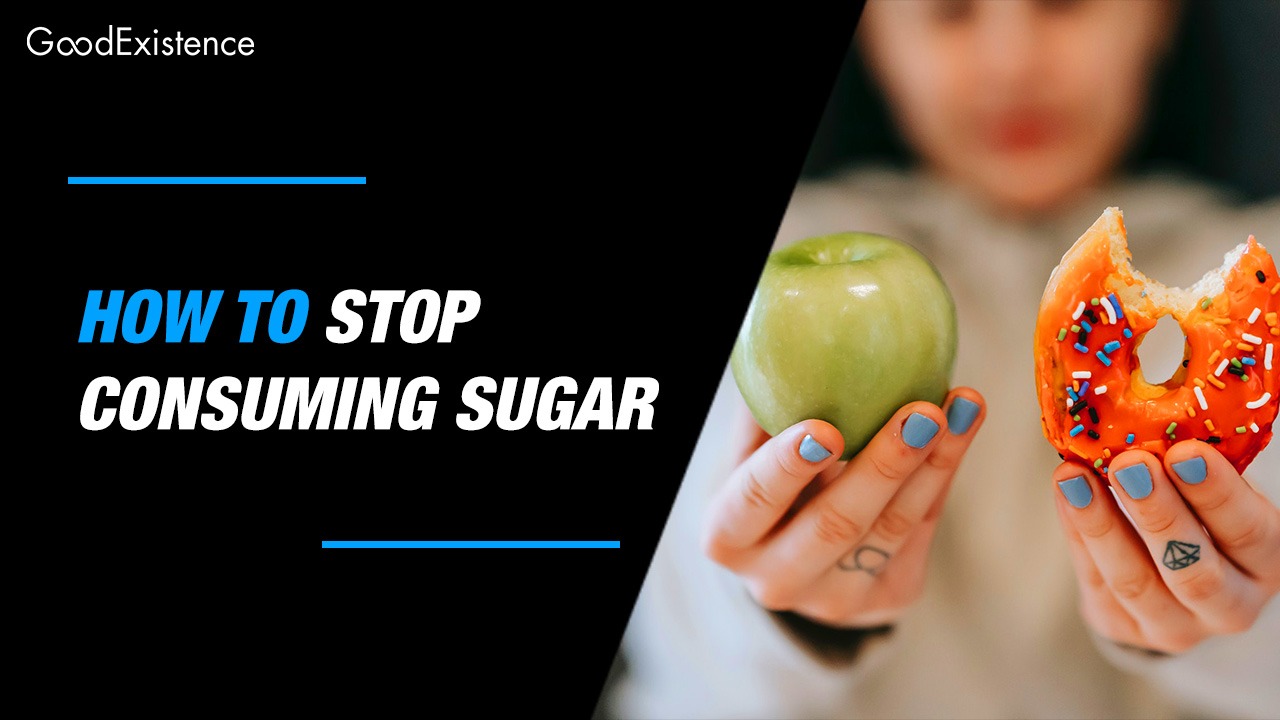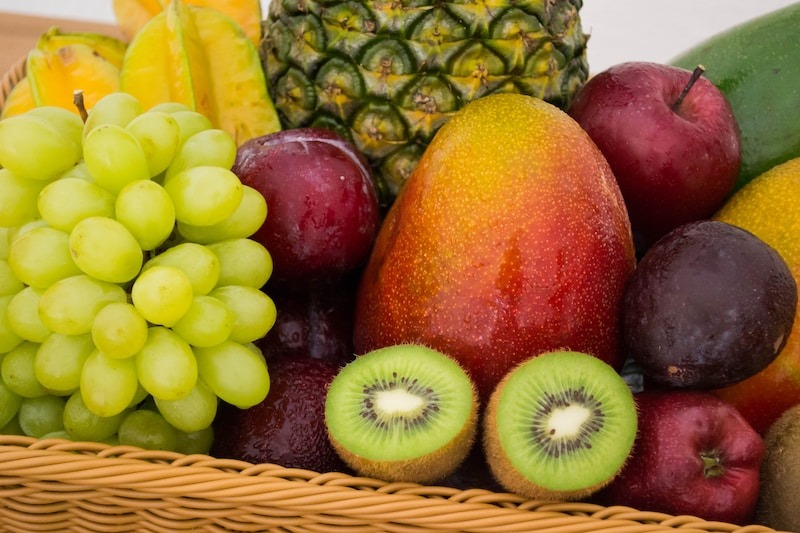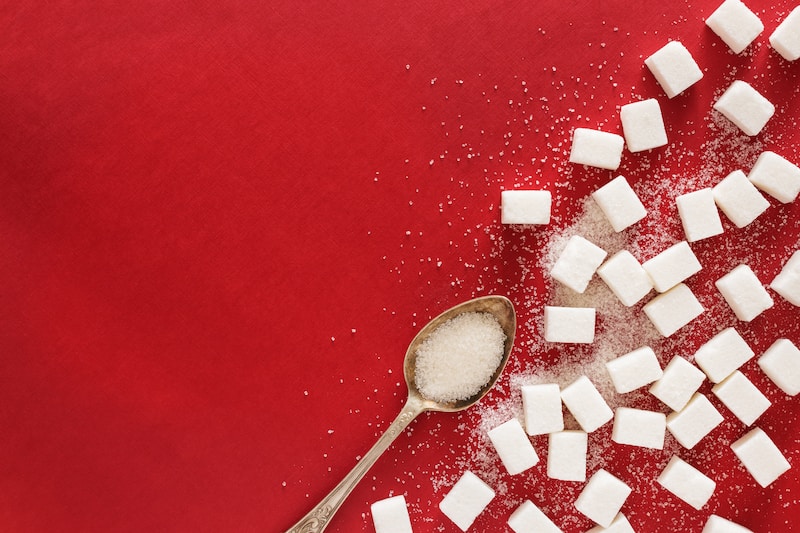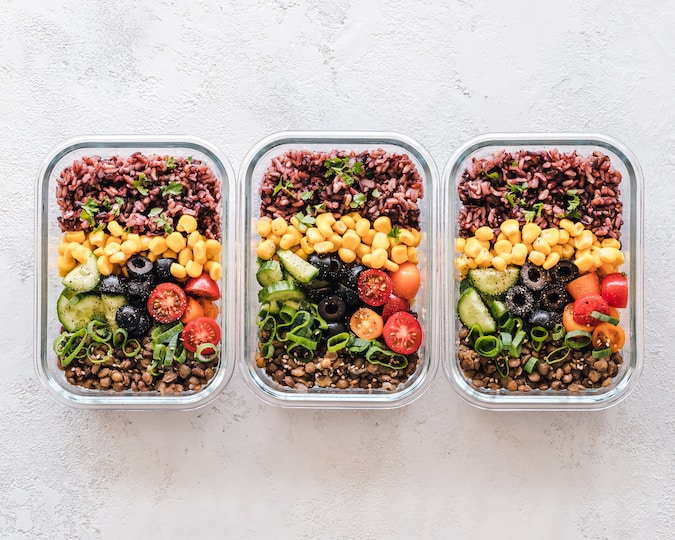Want to learn how to stop consuming sugar and live a more healthy life? Well then… you’ve come to the right place! In this guide, we will explore why it’s important to reduce your sugar intake and how to do so. We’ll also discuss the potential benefits of quitting sugar as well as any challenges that may arise throughout the process.

But first…
We need to talk about why reducing our sugar intake is important and how doing so can help us lead healthier lives.
Most of us would like to think that we have our sugar intake under control. But, if you’re anything like me, you’ve had more than a few slip-ups when trying to stop consuming sugar and have found yourself amid a full-blown sugar binge from time to time.
If this sounds familiar, then I am here to tell you there is hope! In this guide, I will provide you with the necessary information to take back control of your sugar intake and live a healthier life.
So grab a cup of coffee or tea (preferably with no sugar haha) and take your time to read this whole post, because it’s a bit lengthy as I wanted to go over many things.
The Sugar Addiction Epidemic

It’s no secret that sugar is everywhere. From the foods we eat to the drinks we enjoy, it seems like there is sugar in almost everything! This has led to a massive epidemic of people suffering from sugar addiction.
For many, this addiction can lead to serious health problems such as diabetes and obesity (myself included, up until two years ago I used to weigh about 250lbs or 115kg).
The good news is that it doesn’t have to be this way, and if I managed to lose over 110 pounds (50kg) in like a year and a half, so can you. Granted, it wasn’t all thanks to quitting sugar, but of course, this has helped as well.
Importance of Quitting Sugar
There are many health benefits to cutting sugar out of your diet. It can help reduce your risk for diabetes, heart disease, and even certain types of cancer. And beyond that, it can also help you lose weight, have more energy throughout the day, and improve your overall well-being.
Understanding Sugar Addiction
To successfully quit sugar, you need to first understand why you are addicted.
Oftentimes, people turn to food as a way of coping with stress or other negative emotions. This can lead to an unhealthy reliance on sugary treats for comfort and satisfaction.
Once you have identified the underlying cause of your addiction, it’s time to create a plan for quitting sugar.
This plan should include goals, strategies, and rewards for meeting those goals. For example, if your goal is to cut out all added sugars from your diet, set a timeline for yourself and reward yourself each time you reach a milestone. Now, you don’t have to reward yourself with a donut, but you can buy yourself a cute shirt or a nice watch.
Types of Sugar
When trying to cut sugar out of your diet, it’s important to understand the different types of sugars available. There are natural sugars found in fruit and dairy products, as well as added sugars that can be found in processed foods like candy bars and chocolate chip cookies.
Knowing the difference between these two can help you make smarter choices when selecting snacks or meals.
Natural vs. Added Sugar

Natural sugars such as fructose are found in whole foods like fruits and vegetables, as well as dairy products.
These foods contain natural sugar molecules that are somewhat beneficial to your health and can help fuel your body with energy.
On the other hand, added sugars are ingredients that are added to food during processing or preparation (bread, cookies, donut, cakes, you get the point).
These added sugars provide little nutritional value and can lead to unwanted weight gain if consumed in large amounts.
Common Sources of Added Sugar
When trying to cut back on sugar, it’s important to be mindful of where added sugars may be hiding.
Common sources of added sugar include soft drinks, energy drinks, sports drinks, candies and chocolates, baked goods like cakes, cookies, and pastries, as well as yogurt and cereal bars.
It’s best to limit or avoid these types of foods and opt for fresh, whole foods instead.
Related article: How to Stop Oreo Addiction
Impact of Sugar on Health
The overconsumption of added sugars can lead to a variety of health issues.
Eating too much sugar can lead to weight gain, high cholesterol and blood pressure, and an increased risk for type 2 diabetes and other chronic diseases.
On the other hand, learning how to stop consuming sugar altogether or at the very least reducing your intake of added sugars can help promote better health outcomes.
Short-term Effects of Cutting Back on Sugar
When first reducing your sugar intake, you may experience some physical and emotional symptoms. This is normal and is usually referred to as the “sugar detox” or “carb flu”.
Common symptoms include cravings for sweet foods, headaches, fatigue, irritability, and difficulty concentrating. It is important to stay hydrated and get plenty of rest while reducing your sugar intake to help ease these symptoms.
I know that when I first went on a Keto diet I always felt lethargic and didn’t have the drive to do anything in the first few days.
But a secret that has helped me tremendously was drinking water with some salt in it and lemon or apple cider vinegar, this helped combat the fatigue I was feeling and I was feeling better in just a few days. So you should give this a try if you’re feeling low on power.
Long-term Effects of Cutting Back on Sugar
Reducing your sugar intake can have numerous long-term health benefits. Studies have shown that it can help improve cardiovascular health, reduce inflammation in the body, and even aid in weight loss.
Additionally, cutting back on added sugars can also reduce your risk for certain diseases such as type 2 diabetes and certain types of cancer.
With time, you may also find that you have more energy, a better mood, and improved focus. Moreover, reducing your sugar intake will help you maintain healthier eating habits in the long run which can lead to an overall healthier lifestyle.
Furthermore, cutting back on added sugars will also help improve your body’s natural ability to process and regulate blood sugar levels.
This is important for healthy nerve and brain function and for keeping energy levels stable throughout the day. Additionally, low blood sugar can also lead to poor concentration and headaches.
Finally, reducing your sugar intake is a great way to help support your digestive health. Too much sugar affects the balance of healthy gut bacteria which can lead to several unwanted side effects such as bloating, constipation, or diarrhea.
Sugar’s Role in Weight Gain

In addition to the numerous health benefits of reducing your sugar intake, it can also be an effective tool for weight management. Studies suggest that added sugars are one of the primary causes of weight gain and obesity, particularly in children and adolescents.
This is because sugary foods create a surge of energy followed by a rapid drop in blood sugar levels which triggers cravings for more sugary food.
The problem is that most people don’t realize how much added sugar they are consuming daily because it can be hidden in many different types of processed foods, such as cereals, bread, and yogurt.
Reducing your sugar intake will help you avoid these excess calories and keep your weight in check.
The Sugar and Brain Connection
What’s more, reducing your sugar intake can also have a positive impact on your mental health. It has been found that high sugar consumption is linked to an increased risk of depression and anxiety.
This could be because too much sugar causes fluctuations in the body’s insulin levels which affects the brain chemistry and hormones responsible for regulating mood.
In contrast, reducing your sugar intake can help keep insulin levels stable which has been found to reduce the risk of depression and anxiety. It can also help improve overall cognitive functioning, such as memory and concentration since low blood sugar levels have been linked to poor mental performance.
Ultimately, reducing your sugar intake is an important part of maintaining good health and a balanced lifestyle. Not only can it help keep your weight in check, but it can also have a positive impact on your mental health.
With some effort and dedication, you can easily make healthier choices to enjoy the benefits of a sugar-free diet.
Tips for Reducing Your Sugar Intake
The first step towards reducing your sugar intake is to become aware of how much-added sugar you consume. Read the labels of all processed foods and beverages to get an idea of how much sugar each item contains.
Next, focus on incorporating more natural sugars into your diet from fruits, vegetables, and whole grains. This will help provide essential nutrients such as vitamins and minerals while also satisfying any sweet cravings more healthily.
Finally, limit your intake of sugary drinks, like sodas, and replace them with healthier alternatives such as water or unsweetened tea.
This will not only help to reduce your overall sugar consumption but also provide hydration which is essential for maintaining good health.
Recognizing the Need to Quit Sugar

It can be difficult to break the habit of consuming too much sugar, but it’s important to recognize when this behavior is impacting your health.
If you find that your sugar cravings are out of control or that you’re having difficulty reducing your intake, it may be time to seek help from a health professional.
There are also plenty of resources available online to help you make healthier choices when it comes to what to eat or drink which makes it easier to stick to a sugar-free diet.
Connecting with others who have successfully reduced their added sugar intake can help provide support and encouragement on your journey toward better health.
Deciding to quit sugar is not easy, but it can be incredibly rewarding. By monitoring how much-added sugar you consume and replacing those items with healthier alternatives, you can take steps toward improving your overall health and well-being.
Identifying Signs of Sugar Addiction
In some cases, it can be hard to recognize when sugar has become an addiction. Common signs include feeling overwhelmed and constantly thinking about cravings, as well as having difficulty controlling the amount of sugar consumed.
If you’re experiencing any of these symptoms, it’s important to reach out for help from a health professional.
It can also be beneficial to keep a food diary or use an app and track how much-added sugar you’re consuming daily. Doing so will help you recognize when cravings are getting out of control and develop strategies for reducing your sugar intake.
Understanding Sugar Cravings
It’s important to understand the difference between physical and psychological cravings. Physical sugar cravings can come on suddenly, while psychological cravings are more of an emotional response.
If you experience sudden physical cravings for sugar, it could be that your body is trying to tell you something – such as a lack of energy or electrolytes, especially if you have worked out recently or did some activities that required some effort.
If this is the case, it’s important to recognize this and make sure you’re getting the right amount of nutrition.
On the other hand, psychological sugar cravings are often linked with stress and emotions such as sadness or boredom. Many people eat sugary and fatty foods as a way of coping with stress or negative emotions.
If you find yourself turning to food for comfort, try to identify the underlying cause and look for healthier ways of dealing with these feelings.
Take some time for self-care or journaling, and focus on nourishing your body with healthy foods. If you’re religious you should also consider praying.
Reasons for Quitting Sugar
There are numerous reasons to quit sugar, here are just 4 of them:
1. Health Benefits
When you quit sugar, the benefits go beyond weight loss. Sugar can cause inflammation in your body, leading to numerous health issues including heart disease, diabetes, and even cancer. Reducing your intake of added sugars is one of the best things you can do for your overall health and well-being.
2. Increased Energy Levels
Sugar can cause energy levels to spike and then crash, leaving you feeling drained and lethargic. When you reduce your sugar intake, your body will be able to use its natural sources of energy more efficiently, leading to higher and steadier energy levels throughout the day.
3. Improved Mental Clarity
Sugar can also affect your mental clarity and concentration. When you reduce or eliminate sugar from your diet, you may find yourself feeling more alert and focused. This can lead to increased productivity and improved performance at work or school.
I remember when I used to do Keto my mental focus was on another level and my productivity skyrocketed.
4. Enhanced Mood and Emotional Well-being
Sugar can also have a negative impact on both your mood and emotional state. Eliminating it from your diet can lead to a sense of tranquility and a more balanced state of mind. Eating healthy foods that provide essential nutrients can also help to boost your overall sense of well-being.
10 Tips On How To Stop Consuming Sugar

If you’ve decided to quit sugar, then this is the section you’ve been waiting for. Here I’m going to list 10 tips for starting your sugar detox journey:
1. Read Labels Carefully
When you’re trying to stop consuming sugar, you should be prepared for all the added sugars that can be found in many packaged foods so it’s important to read the labels carefully before purchasing anything. Opt for products that have no added sugar.
2. Stock up on Healthy Alternatives
Make sure to stock your pantry with healthy alternatives like fresh fruits, nuts, seeds, and whole grains. Having these items on hand will make it easier to stick to your sugar-free diet.
3. Get Support from Friends and Family
Letting your friends and family know about your plans to quit sugar can help you stay on track. They can provide encouragement and support to keep you going when times get tough.
4. Take it Slow
Eliminating sugar from your diet is a process so don’t expect to see results overnight. Start by making small changes and gradually work your way up to a sugar-free lifestyle.
5. Develop Healthy Habits
It can be difficult to break old habits but developing new ones is key to creating lasting change especially when you’re trying to stop consuming sugar. Focus on forming healthy habits like eating regular meals, drinking plenty of water, and exercising daily. This will help you build a stronger foundation for your sugar-free lifestyle.
6. Find Healthy Substitutes
When cravings strike, turn to healthy substitutes instead of reaching for sugary snacks. Whole grains, fruits, and vegetables are all great options that can satisfy your cravings without the added sugar. There are also many low-carb and zero-sugar treats that you can enjoy, so be on the lookout for those.
7. Indulge Intelligently
Occasional treats are okay as long as you do it in moderation. If possible, look for desserts that are free from added sugars or make your own using natural sweeteners like honey and maple syrup. This way, you can indulge while still maintaining a balanced and healthy diet.
8. Find Communities Online
Countless online communities offer support and advice on living a sugar-free life. From recipe ideas to health tips, these websites provide an invaluable resource for anyone looking to break free from their sugar addiction.
Build a network of like-minded people and exchange tips on how to stay motivated and enjoy the journey!
9. Don’t Give Up
It might be that at first you won’t be able to get accustomed to a whole new diet and lifestyle and so you might be inclined to quit, however, you should try your best not to do that.
Still, if you end up eating some sugary stuff and fell off the wagon, don’t fret, and most definitely don’t give up. Count it as a cheat day, and move on, the next day start eating clean again. It happens to most of us.
10. Have Fun!
And lastly, another important tip to remember when you’re trying to stop consuming sugar is that this new lifestyle change doesn’t have to be boring or restrictive. Make it fun by trying out new recipes, experimenting with different flavors, and exploring new ways of eating.
Enjoy all that this lifestyle has to offer and don’t forget to give yourself credit for all the progress you’ve made. With consistency and dedication, you can make amazing strides toward a healthier lifestyle.
Planning Meals and Snacks

When it comes to eating a healthy, balanced diet, planning your meals and snacks ahead of time can make all the difference. Start by making a list of meal ideas that are both sugar-free and delicious.
Having a clear plan will help you stay on track and resist temptations. Keep in mind that it’s ok to indulge occasionally as long as it fits into your overall health and wellness plan.
When you’re shopping for groceries, opt for items that are as close to their natural state as possible.
Whole foods like fruits, vegetables, and lean proteins are great sugar-free choices. Avoid processed options, which often contain added sugars and harmful ingredients.
A good rule of thumb is when going into supermarkets avoid the aisles and the middle of the store and just stay outside them, that’s where most of the healthy foods are placed.
Going into aisles can be risky as that’s where you’ll going to find trigger foods such as sugary treats and a lot of processed foods that might make you crave them.
Healthy Alternatives to Sugar
If you still feel the need to sweeten up your food and drinks, there are plenty of healthy alternatives that can provide a satisfying fix without all the sugar. Natural sweeteners such as stevia, honey, coconut sugar, and maple syrup are just some of the options available.
These natural sweeteners can be used in baking or simply added to coffee or tea. For added flavor and sweetness, try adding spices like cinnamon or nutmeg, fresh fruit, or unsweetened coconut chips.
Making these small changes can help you reduce your sugar intake without sacrificing taste. Remember that it will take time and practice to break old habits, but the rewards are worth it in the end!
If possible just try and stay away entirely even from sugary substitutes, especially synthetic ones such as aspartame and sucralose, as those are linked to DNA damage and even cancer as per the latest studies.
For a couple of years now I have quit sugary coffee altogether and just enjoy the natural taste of black coffee, and I got to say, I can’t go back to having sugar in my coffee now, I just like the taste better since I can feel the aroma and natural flavor of the coffee.
Meal Prepping Tips
To stick to a healthy diet and reduce the chances of eating high-sugar processed foods, it is important to plan ahead and meal prep. Meal prepping involves preparing food in advance for several days worth of meals.
This will help make eating a healthy balanced diet easier as you won’t be tempted by unhealthy options when you’re busy or on the go.
To make meal prep easier, try to designate a single day each week for prepping food and grocery shopping.
This will help ensure that you always have fresh ingredients and meals ready when needed. You can also batch-cook meals such as soups, chili, and casseroles and freeze them in individual portions so they’re ready to heat up quickly when needed.
When it comes to food shopping, try to avoid processed foods as much as possible and opt for whole foods whenever you can.
This includes lots of fruits and vegetables, lean proteins such as fish or chicken, whole grains like brown rice or quinoa, legumes such as beans or lentils, healthy fats like nuts and seeds, and dairy products like yogurt (but not those that contain sugar).
Staying Hydrated

One of the most important things to consider when it comes to keeping a healthy diet is staying hydrated. Drinking plenty of water throughout the day will help keep your body functioning optimally and allow you to better absorb nutrients from food.
If you find plain water boring, try adding fresh slices of lemon or lime for natural flavor. You can also opt for unsweetened herbal teas and soups to provide extra hydration. Aim to drink at least 8 glasses of water each day to stay properly hydrated.
Finally, it’s important to avoid sugary drinks such as soda and fruit juices, as these can lead to weight gain and other health issues. Stick to plain water or naturally flavored beverages whenever possible.
Overcoming Potential Challenges
Sticking to a healthy diet can be challenging, especially if you’re busy and don’t have much time to prepare meals. Some tips for overcoming potential challenges when trying to stop consuming sugar include:
- Planning ahead and shopping for groceries in advance so that you always have healthy ingredients on hand
- Prepping meals or snacks in bulk on designated days each week
- Keeping healthy snacks like nuts or fruits on hand for when you’re feeling hungry
- Stocking up on frozen fruits and vegetables that can be quickly cooked or added to a meal
- Trying new recipes so that you don’t get bored with the same meals each week
These tips can help make it easier to stick to your diet, even when life gets hectic. With a bit of planning and preparation, it’s possible to maintain a healthy and sugar-free diet without sacrificing too much time or energy.
Dealing with Sugar Withdrawal Symptoms
Sugar can be very addictive, and many people have difficulty cutting out sugary foods from their diet.
If you’re having a hard time breaking the sugar habit, it’s important to understand some of the potential withdrawal symptoms that may occur. Common symptoms include feeling tired, irritable, anxious, or depressed.
The best way to manage these symptoms is to take it slow and gradually reduce your sugar intake over time.
When you first try to stop consuming sugar, you should start by eliminating processed foods and sugary drinks, then progress to reducing the amount of added sugars in foods like cereals or condiments.
Managing Social Situations
Sticking to a healthy diet can be particularly difficult when you’re surrounded by friends and family who are indulging in unhealthy foods.
It’s important to remember that it’s okay to say no if you don’t want to partake in the occasional office birthday cake or any other sweet treats.
However…
Even though this guide is all about how to stop consuming sugar for good, you can always have a “cheat day” or “cheat meal” every now and then, it’s not going to be the end of the world, that is if you are disciplined and don’t make a habit out of it.
How To Stop Consuming Sugar: Final Words

So if you ever wondered how to stop consuming sugar, hopefully, this article gave you a few ideas and tips on how to start right. The key takeaway is that it’s important to take things slow and reduce your sugar intake gradually.
You should also be mindful of the potential withdrawal symptoms, and reach out for support if needed. Finally, when in social situations where unhealthy food choices are being made, don’t feel shy about saying no or making healthier suggestions.
With a bit of planning and preparation, it’s possible to curb your sugar cravings and lead a healthier life.
It goes without saying though that we are not medical professionals and that you should always consult with your doctor about a diet change, especially if you suffer from certain medical conditions.
But with the help of your doctor and a bit of discipline, you should be well on your way to kicking that sugar habit for good!
One simple thing you can do from today in your journey to stop consuming sugar is to start drinking more water throughout the day – this helps with curbing cravings and encourages healthy eating overall.
Oh and if you are craving chocolate for example, you can do what I did when I was on the Keto diet, and just simply make your own chocolate (kinda), it’s fast, easy, cheap, and healthier than the chocolate you get in the store. If you add extra protein to it, then it’s also great for those that are exercising a lot.
All you need is cacao powder, coconut oil, natural peanut butter (or any other nut butter), and protein powder which is optional (whey or vegan, up to you) if you want you can also add stevia, or monk fruit, to make it sweeter, or a bit of honey.
Mix all of that into a pan with some water or milk and after mixing it for a while and it thickened, let it cool down and store in the fridge. I should probably create a more in-depth recipe for this in the future.
It’s important to remember that your journey won’t happen overnight – it takes time and dedication to break old habits and form new ones.
For example, I’ve done the low-carb Keto diet on and off for a while, and even though I was able to stay completely off sugar and carbs for months on end, in the end, I’ve decided to follow the Paleo diet which includes more carbs and fruits, with the occasional cheat meals/days (it happens).
Good luck and don’t give up, or if you do, don’t forget to try again tomorrow 🙂
How To Stop Consuming Sugar – FAQ
Can I still eat fruits while quitting sugar?
Yes, you can still eat some fruits while cutting down on sugar. Fruits contain natural sugars – but also many essential vitamins and minerals that are beneficial for your health. Try to focus on eating more whole fruits instead of processed or sugary snacks to satisfy your cravings. If possible though after a while you should start cutting on the amount of fruits you eat as well, because too much fructose isn’t great also.
How long does it take to overcome sugar addiction?
It depends on the individual – some people may be able to quit cold turkey while others may need to take a more gradual approach. Overcoming sugar addiction tends to be a process that takes time and dedication, so it’s important to be patient with yourself as you make changes. That said, if you stay consistent and focus on forming healthy habits, you should start seeing results in a few weeks or months.
What foods should I avoid when quitting sugar?
It’s best to avoid processed and sugary snacks, candy, desserts, soda, energy drinks, and other foods that are high in added sugars. You should also limit your intake of refined carbs like white bread and pasta as these can spike blood sugar levels. Instead, focus on eating more whole foods like fruits and vegetables, nuts, seeds, fish, and lean proteins. These can help keep you full and provide you with the nutrients your body needs to stay healthy.
Are there any healthy alternatives to sugar?
Yes. Some people find it helpful to replace sugar with natural sweeteners such as stevia or monk fruit. These can provide a sweet taste without the negative health effects of sugar. Alternatively, you can also opt for other sugar-free treats like fresh fruit or smoothies to satisfy your sweet tooth without derailing your progress.
Can I still eat junk food when trying to quit sugar?
It’s generally not recommended if you’re trying to overcome a sugar addiction. Processed junk foods usually contain high levels of added sugar, so they can be counterproductive to your goals. Instead, try to focus on eating more unprocessed whole foods that are naturally low in sugar and rich in nutrients. This will help you form healthier habits that can lead to long-term success.
What are the long-term health benefits of quitting sugar?
Yes, it is possible to have a sugar-free diet and still enjoy food. There are plenty of recipes out there that are free of added sugars and still taste great. Additionally, you can also experiment with incorporating different spices and herbs into your dishes to add extra flavor without relying on sugary ingredients. With a bit of creativity, you’ll be able to find delicious recipes that don’t require sugar for sweetness.
Did you enjoy this article on How to Stop Consuming Sugar? Please consider sharing it with your friends! It helps us out (and you might also help them as well)
See also in Addictions
30 Breaking the Busy Addiction
20 Warning Signs of Love Addiction
30 Signs of Attention-Seeking Behaviors
12 Tips for Overcoming Shopping Addiction
10 Tips for Breaking Free from Video Game Addiction
20 Warning Signs of Perfectionism Addiction